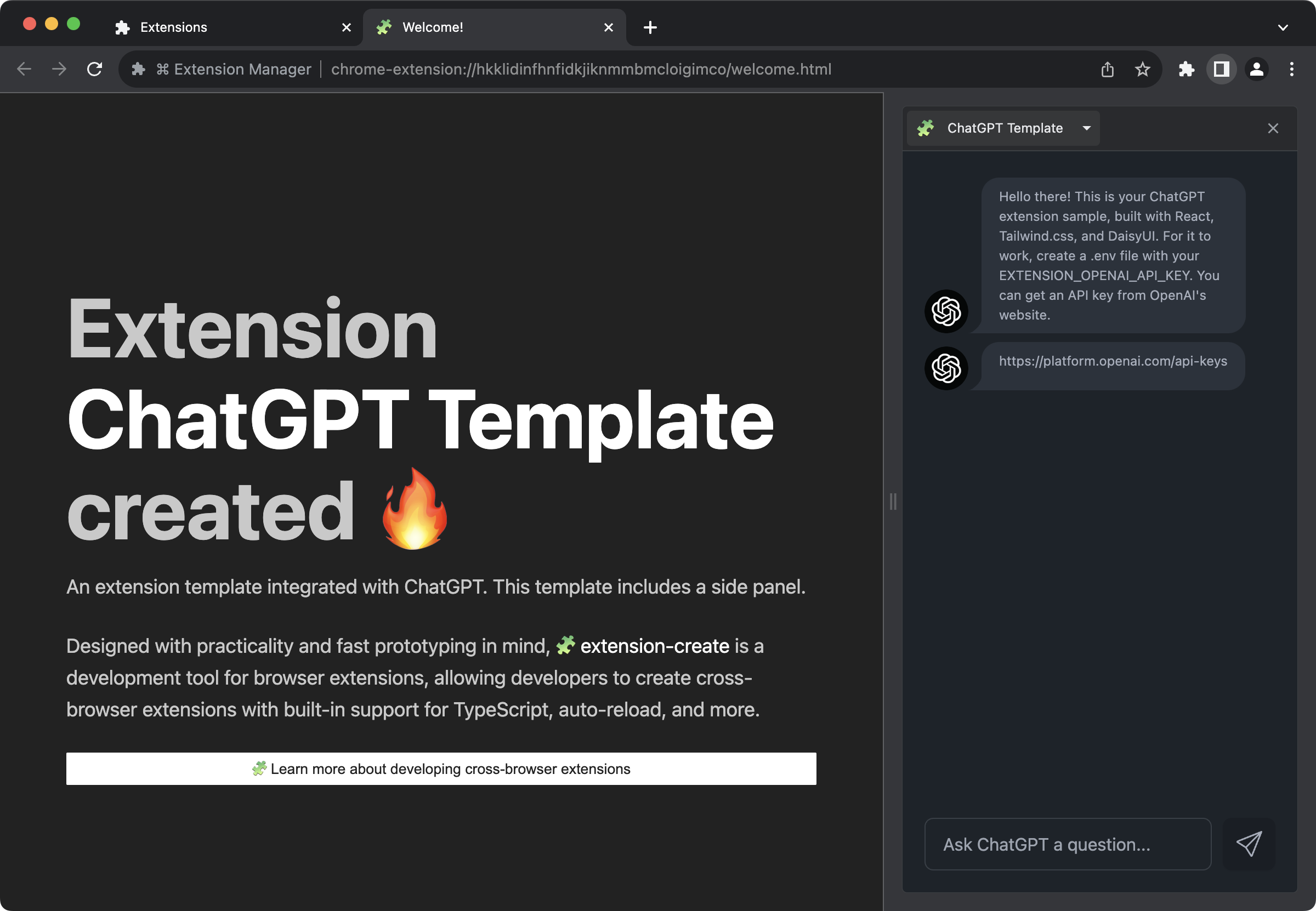Environment Variables
Extension comes with built-in support for environment variables via .env file (and alikes).
Warning
This feature is not stable yet. You can track its development here.
Take for example, our ChatGPT Template.

See that it expects the EXTENSION_OPENAI_API_KEY environment variable? Create an .env file at the project root so Extension can parse its contents at runtime.
The following file names are supported:
.env.env.local.env.defaults.env.example
How To Use
- Create a new file using one of the supported file names at the same folder level as your
manifest.jsonfile. - In your extension code, add the Node.js pattern of
process.env.YOUR_VARIABLE_NAME.
TIP: Environment variables are not supported in the
manifest.jsonfile.
See the sample below:
// service_worker.js
const helloWorld = process.env.HELLO_WORLD
console.log(helloWorld)# .env
HELLO_WORLD=Hello, world!
Will output the following:
// service_worker.js
- const helloWorld = process.env.HELLO_WORLD
+ const helloWorld = "Hello, world!"
console.log(helloWorld)🧩 Extension • create cross-browser extensions with no build configuration.